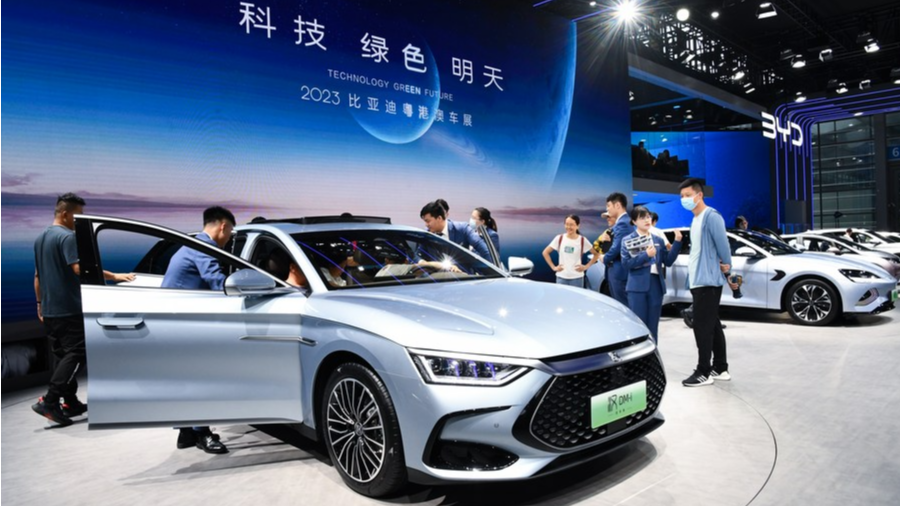
Global North countries need to explore the reality of Global South countries to avoid creating unfair and harmful trade policies, a virtual forum heard recently.
“Global North should separate trade issues from political issues and security issues and take more friendly trade policies,” Sun Lipeng, assistant director and associate research professor at Institute of American Studies, China Institutes of Contemporary International Relations, said in a June 28 forum. The forum is themed “Balancing Interests: A North-South Dialog on Trade Protectionism” and was organized by the Foreign Policy Community of Indonesia (FPCI).
The EU regulation affects Indonesia’s economy. Indonesia’s exports to EU countries last year fell from the 2022 level that accounted for almost 18 percent of the country’s total exports in that year. Major export items included palm oil and its fractions, coal and copper
“Our goal, the final goal and the ultimate goal is to raise people’s living standards, not to challenge or replace the dominance of who (is seen as) the big power,” Sun said.
READ MORE: Indonesia launches WTO dispute against EU over fatty acids
Sun was among the three speakers featured in the forum. The two other speakers were Simon Evenett, academic director of the MBA programs at the University of St. Gallen, Switzerland; and Tom Lembong, former head of Indonesia's investment coordinating board and former minister of trade. Qarrem Kassim, analyst at Institute of Strategic & International Studies Malaysia, moderated the forum.
Sun said the stronger presence of Chinese cars in China and in the global market had been due to China’s capacity, and not because of Chinese government subsidy to the country’s car industry.
Sun cited the BYD electric car, noting this brand has become so popular in the Chinese market.
Sun said the government has encouraged EV’s energy consumption but it is just for stimulating the using of such cars.
In March this year China filed a complaint at the World Trade Organization (WTO) over the United States’s subsidies for electric vehicles. China’s Ministry of Commerce said the complaint was filed to protect the interests of Chinese new energy vehicle enterprises and maintain an environment of fair competition in the global new energy vehicle industry.
The ministry said in June that China reserves the right to file lawsuits with the WTO concerning the European Union’s (EU) plan to impose provisional duties on imports of Chinese EVs.
Speakers at the June 28 forum also discussed deforestation and corporate social responsibility.
The EU Deforestation-Free Products Regulation, which went into effect in June of last year, obliges companies including those from outside the political and economic bloc to disclose the environmental and social impacts of their activities in order for their products to be allowed into union member countries.
The EU regulation affects Indonesia’s economy. Indonesia’s exports to EU countries last year fell from the 2022 level that accounted for almost 18 percent of the country’s total exports in that year. Major export items included palm oil and its fractions, coal and copper.
Simon Evenett, academic director of the MBA programs at the University of St. Gallen in Switzerland, said it was natural that in response to crises like the COVID pandemic governments came to intervene, increasing trade distortion.
But he said that industrial policy intervention undertaken by Global North countries were not always well designed.
The question is whether governments are implementing smart and effective policies that show very clear positive results and that can be directly linked as being products of those interventions
“In the European Union, trade policy is one of the areas where a lot of special interest groups put huge pressures on the (EU) Commission,” Evenett said.
Saying that China had done exceptionally well with commercial achievements in its car industry, Evenett saod that taking adversary measures against China “is essentially punishing success.”
Tom Lembong, former head of Indonesia's investment coordinating board and former minister of trade, said governments being inclined to intervene is a global phenomenon.
READ MORE: Australia: Indonesia import permit delays hit agricultural trade
“Very few governments these days would say that, ‘oh, we’re just going to leave things on the market’, which is a dramatic change from 1990s or even the two thousands,” Lembong said.
The question is whether governments are implementing smart and effective policies that show very clear positive results and that can be directly linked as being products of those interventions, he said.
Lembong said it is often more for symbolic purposes or for political purposes that governments ban certain imports and exports.
Prime Sarmiento in Hong Kong and Xinhua news Agency contributed to this story.


